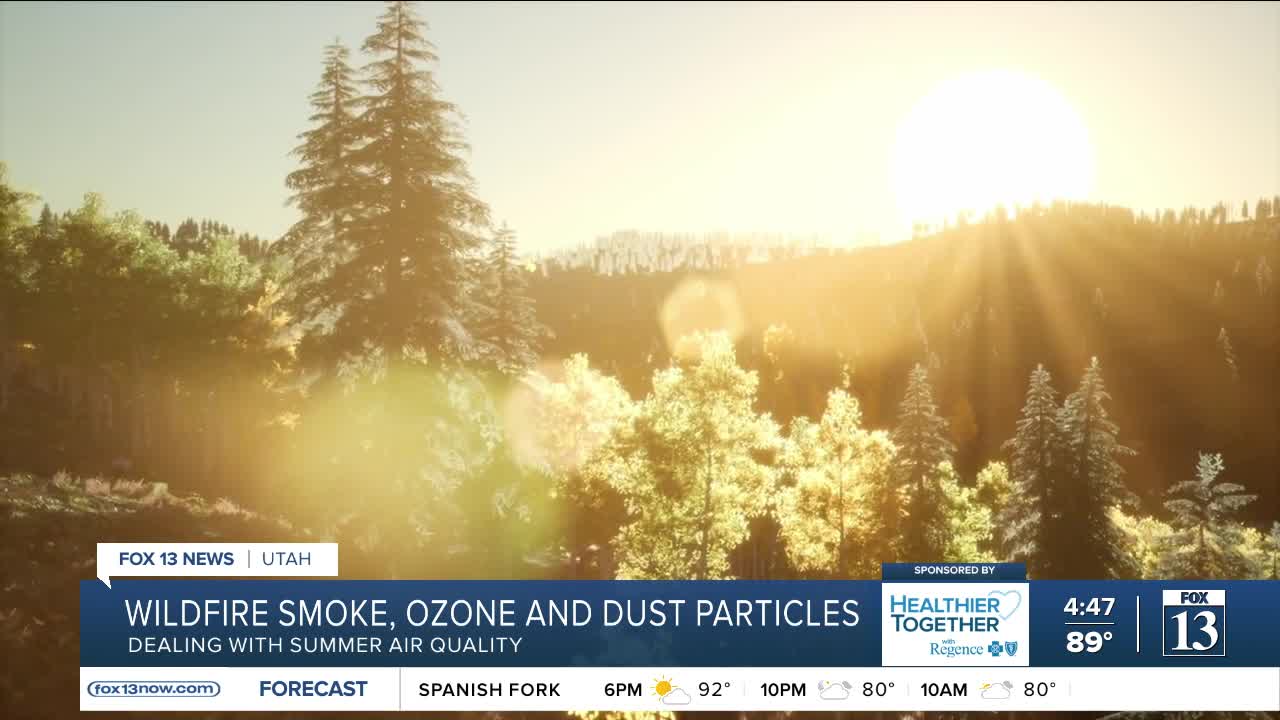“Summertime is probably one of our healthiest times,” said Dr. Mike Woodruff, executive medical director at Regence BlueCross BlueShield of Utah. “Except for the air quality issues that come in the summer.”
While most people are more active during the summer months and typically eat healthier, Woodruff says our air is cause for concern due to a few different factors.
“Ozone is underrecognized, but it’s actually very common, particularly during the hotter months,” he said.
Ozone is a highly reactive form of oxygen that forms at ground level from pollutants and sunlight — and it’s harmful to breathe.
“It’s usually worse in the afternoon and it’s usually worse in areas with hotter, more stagnant air,” Woodruff said. “So if you think of highways or roads … the problem with it is, it gets into your lungs.”
Salt Lake City ranks as the ninth most polluted metro in the nation when it comes to ozone.
Dust is also a problem, along with tiny particulate matter we inhale — like PM 2.5.
“Those particles ae actually really, really small — 2.5 microns or smaller — and that’s actually 30 times smaller than a human hair,” Woodruff said.
The problem is those particles are so small, even if you don’t see them — on a seemingly clear day — they could still be causing you damage, going all the way down into your lungs and elevating your risk of respiratory issues, heart attack, and stroke.
“Know your risk, and that includes, do you have conditions that make you susceptible to high levels of air pollution,” Woodruff said.
Be sure to check the air quality where you are. You can simply go online and check AirView, powered by Tellus on FOX13now.com.
“You can also go to AirNow.gov,” Woodruff said. “And many weather apps on smartphones now include those air quality levels.”
If the air quality is bad, the apps will give recommendations for sensitive groups — including people with asthma, COPD, children under 5, older adults and pregnant people — on when to stay indoors and limit exposure.
You can choose to exercise indoors, use a HEPA filter at home and, on bad air days, some may opt to wear a mask to filter out harmful particles.



